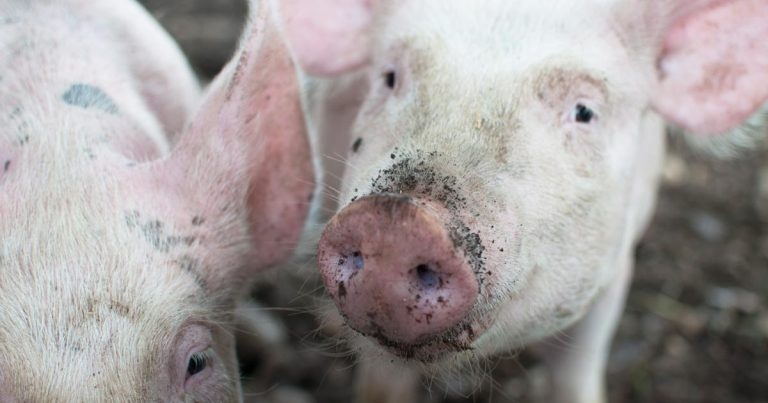13 Jul 2020
Researchers at The Roslin Institute work with scientists in the US to produce the most accurate map of the pig genome.

Scientists at The Roslin Institute have decoded the whole pig genome in a development that will facilitate the discovery of genetic variations linked to key traits.
The findings could help improve selective breeding and enable more accurate use of gene-editing technologies to develop pigs with desired characteristics, such as resistance to infectious diseases, said researchers.
Knowledge of the genome also enables identification of genetic similarities between pigs and humans, which will enhance biomedical research in which pigs are used as models to study human health.
The study involved 40 scientists from 15 laboratories in the UK and US, and was led by scientists at Roslin – part of the University of Edinburgh Royal (Dick) School of Veterinary Studies – and the US Department of Agriculture’s Agricultural Research Service Meat Animal Research Centre.
The improved quality of the reference allowed the researchers to identify a further 2,500 pig genes with an evolutionary link to a human gene, increasing the known number of such genes to 15,500.
Scientists characterised the genomes of two different pigs – a sow from the Duroc breed and a male crossbred white composite boar, and included detailed information of a further 11 pigs from European and Asian breeds.
Amanda Warr of The Roslin Institute at the University of Edinburgh said: “The new reference genome provides scientists around the world with an accurate and complete framework on which to base their pig research, whereas before they were working with a very incomplete picture.”
The results of the study – which was funded by the UK Biotechnology and Biological Sciences Research Council, the US Department of Agriculture, the Wellcome Trust and the Roslin Foundation – are published in the journal GigaScience.